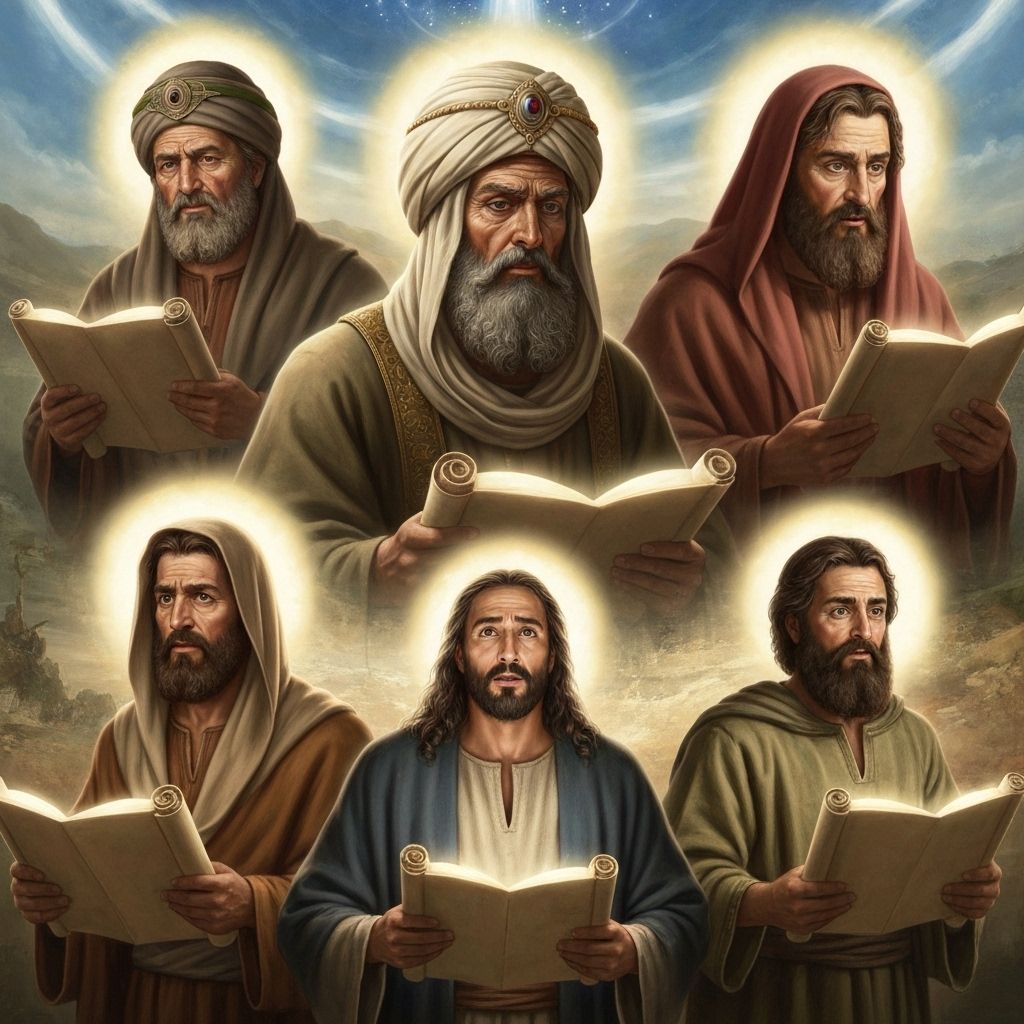3-Minute Summary
The Words of the Torah Explained with Help from Rashi and Ramban
Rashi (1040-1105) was a medieval French rabbi whose commentary on the Torah and Talmud is considered essential reading. His explanations focus on the plain meaning of the text and are known for their clarity and accessibility.
Ramban (1194-1270) was a Spanish rabbi, physician, and philosopher who provided deeper mystical and philosophical insights into the Torah, often building upon Rashi's work while adding his own profound interpretations.
Parashat Vayetzei opens with Jacob's flight from Esau's wrath, marking a crucial turning point in his spiritual journey. His departure from the Promised Land represents both a physical exile and a spiritual descent that will ultimately lead to greater spiritual growth and return. The phrase 'vayetzei' (and he went out) suggests not just physical departure but a journey into unknown territory, both geographically and spiritually, that will test and refine his character.
Jacob's dream at Bethel represents one of the most powerful visions of divine connection in the Torah. The ladder reaching from earth to heaven symbolizes the continuous communication between the divine and human realms, showing that Hashem is present even in the most difficult and uncertain circumstances. The angels ascending and descending suggest that divine messengers are constantly active in human affairs, guiding and protecting those who trust in Hashem's promises.
Hashem's promise to Jacob in the dream—to be with him, protect him, and bring him back safely—establishes the divine covenant with Jacob personally, not just through his father Isaac. This promise provides Jacob with the assurance he needs to face the challenges ahead, teaching us that divine promises are not just inherited but must be personally received and trusted. The promise of return suggests that exile and difficulty are temporary, and that divine purposes ultimately lead to restoration and blessing.
Jacob's response to the dream—building an altar and making a vow—shows his growing spiritual maturity and recognition of divine presence. His vow to serve Hashem and give a tenth of all he receives demonstrates his commitment to divine service and gratitude, establishing the principle that divine blessing requires human response and commitment. The altar becomes a marker of divine encounter and a reminder of Hashem's promises.
Jacob's arrival in Haran and his meeting with Rachel at the well echoes the story of Abraham's servant finding Rebecca, suggesting that divine providence guides romantic relationships and that love can be both human emotion and divine calling. Jacob's immediate love for Rachel shows the power of romantic attraction, while his willingness to work seven years for her demonstrates the depth of his commitment and the value he places on authentic relationship over immediate gratification.
Laban's deception in giving Leah to Jacob instead of Rachel introduces the theme of measure-for-measure justice and the way that deception returns to the deceiver. Jacob, who deceived his father to obtain the blessing, now experiences deception himself, teaching him empathy and the consequences of his actions. This experience will refine his character and help him understand the impact of deception on others.
Jacob's marriage to both Leah and Rachel creates a complex family dynamic that will shape the future of the Jewish people. Leah's role as the mother of most of the tribes shows that divine purposes often work through unexpected circumstances and that those who seem less favored may actually play crucial roles in divine plans. The rivalry between the sisters reflects the ongoing tension between different aspects of human nature and divine service.
The birth of Jacob's children through his wives and their maidservants demonstrates the way divine promises are fulfilled through human relationships and family building. Each child's name reflects the emotional and spiritual dynamics of the family, showing how divine blessing works through human experience and emotion. The names given to the children reveal the mothers' hopes, struggles, and recognition of divine involvement in their lives.
Jacob's success in shepherding Laban's flocks despite Laban's attempts to cheat him shows his growing wisdom and divine blessing. His understanding of animal breeding and his ability to prosper despite difficult circumstances demonstrate that divine favor operates through human skill and effort. His success also shows that righteousness can flourish even in hostile environments when people maintain their integrity and trust in divine guidance.
The increasing tension between Jacob and Laban reflects the way that prosperity and success can create jealousy and conflict even within families. Laban's attempts to cheat Jacob and change his wages repeatedly show how greed and dishonesty can poison relationships and create ongoing conflict. This tension will eventually lead to Jacob's decision to return to Canaan, showing that divine timing often works through human circumstances and relationships.
Jacob's growing family and prosperity in Haran demonstrates that divine promises can be fulfilled even in exile and difficult circumstances. His children, who will become the twelve tribes of Israel, represent the fulfillment of divine promises through human family building and the way that divine blessing multiplies through generations. Their birth in Haran shows that divine purposes can be fulfilled anywhere when people maintain their faith and commitment.
The parsha concludes with Jacob's recognition that it's time to return to Canaan, showing his spiritual growth and his understanding of divine timing. His decision to leave Laban's household despite the potential for conflict demonstrates his growing wisdom and his trust in divine protection. This decision sets the stage for his return journey and his eventual reconciliation with Esau, showing that spiritual growth often requires the courage to face past conflicts and seek reconciliation.
Vayetzei teaches us about the way divine presence accompanies us through difficult journeys, the way that challenging relationships can refine our character, and the way that divine promises are fulfilled through human faithfulness and effort. Jacob's experience in Haran shows that spiritual growth often occurs through difficult circumstances and that divine blessing can flourish even in hostile environments when people maintain their integrity, work hard, and trust in divine guidance.








